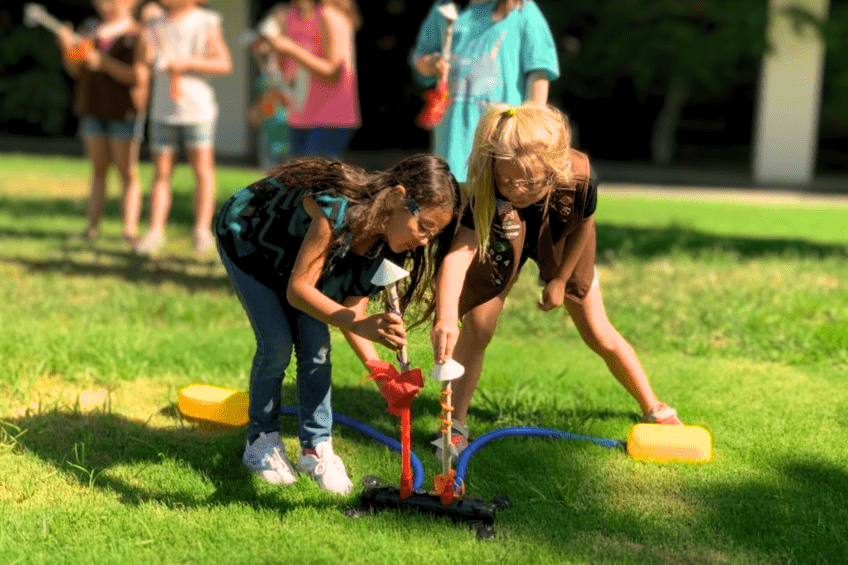
Exploring the World of Environmental Engineering
In today’s world, ensuring a clean water supply, monitoring pollution, and safely disposing of hazardous waste have become paramount challenges. Enter: environmental engineering! Environmental engineering takes on these critical issues and more, because this profession is armed with innovative solutions that protect and preserve our planet. Whether you’re passionate about ensuring everyone has access to clean water or creating practical ways to reduce pollution, sustainability engineering is the path to a better future.
Join us on this thrilling journey as we delve into the profound significance of environmental engineering, unearth remarkable projects, navigate the career pathways of environmental engineers, and peer ahead into the exciting challenges that await this dynamic industry. Get ready to embark on an inspiring adventure with us!
The Significance of Environmental Engineering
Clean water, a secure food source, and good sanitation are fundamental to human health and prosperity. Addressing these essential issues is the realm of environmental engineering. The systems we develop today will shape the world of tomorrow. Neglecting the care of our water, soil, and air may result in serious challenges for future generations.
The field of environmental engineering is growing, according to statistics from the U.S. Bureau of Labor. The industry will see a 6% growth over the next 10 years, with 3,400 jobs opening up each year. These statistics encourage those interested in sustainability engineering and creating a better world.

Guiding Your Child’s Interest in Environmental Engineering
If your child is interested in becoming an environmental engineer, you can provide them with guidance on the educational path they should pursue. Support your child’s curiosity and love for the environment as they explore educational routes that align with their interests. To help you discover a strong path for success, here are a few of our favorite guidance tips:
Start with a Strong Foundation
Encourage the child to excel in their Science, Technology, Engineering, and Mathematics (STEM) courses throughout elementary and middle school. These subjects are fundamental to engineering.
High School Preparation
In high school, ensure they continue to perform well in science and math classes. Additionally, they should explore advanced courses in physics, chemistry, biology, and calculus if available.
Research Environmental Engineering
Help the child understand what environmental engineering is by exploring books, websites, and documentaries on the topic. If possible, enroll them in STEM after school programs or summer camps to deepen their interest and knowledge.
Choose the Right College Preparatory Courses
In high school, advise them to take college preparatory courses to prepare for engineering programs in college. Courses in physics, chemistry, biology, calculus, and advanced mathematics will be valuable.
Select a College or University
Research colleges and universities that offer strong engineering programs, especially those with environmental engineering specializations. Encourage the child to apply to schools that align with their interests and goals.

Bachelor’s Degree in Engineering
Once admitted to a college or university, they should pursue a bachelor’s degree in engineering. While some institutions offer specific environmental engineering programs, a general engineering degree also serves as a foundation.
Consider Internships
Encourage the child to seek internships or co-op opportunities during their undergraduate studies. These experiences provide hands-on exposure to environmental engineering practices.
Stay Informed and Engaged
Suggest that they join engineering clubs or organizations related to environmental issues. Staying informed about the latest developments in the field is crucial.
Passion and Dedication
Remind them that passion for the environment, dedication to solving environmental challenges, and continuous learning are key factors in becoming a successful environmental engineer.

Real-World Environmental Engineering Projects
Engineering is not a new industry. Rather, for thousands of years, people have been designing and building infrastructure that help solve real-world problems, including:
Aqueducts
The ancient Greeks world found a way to bring water into cities and buildings through the aqueduct system. These long channels were often constructed from rock or concrete and some still remain today. Using gravity, ancient people were able to bring fresh water to populated areas through a series of pipes, bridges, and tunnels. Some have been measured to be 57 miles long (92 kilometers).
Wastewater Treatment Plants
Getting fresh water into cities is a major feat for engineers, but it’s also important to get sewer water away from populations. And because there is a limited amount of water on the planet, finding a proper way to reuse water is crucial. Moreover, wastewater treatment also reduces the spread of disease and sickness among populations.
Hybrid Vehicles
Air quality has become a significant concern, with much attention directed toward vehicle emissions as a major contributing factor. Hybrid vehicles are the heroes in this story, designed to slash the CO2 emissions typically spewed into the air by gasoline-based vehicles. This not only keeps people on the move but also fosters a healthier environment.
These remarkable endeavors fall under the umbrella of civil and environmental engineering initiatives. But that’s not all! Energy and environmental engineering teams are also hard at work, chipping in to make our planet better. They’re behind ingenious projects like wind turbines, green certification programs for construction, and cutting-edge water systems that use ultraviolet radiation to disinfect water. It’s all part of the grand effort to create a more sustainable world.

Science, Technology, and Innovation in Environmental Engineering
Advancing technologies have helped environmental engineers excel in their goal of creating a healthier environment. These tools include:
Geographical Information Systems (GIS)
Using GIS, engineers are able to get key information on soil or water. These details are vital in helping environmental engineers understand the challenge they face, and also assists them in identifying the technique and methods they need to use for the solutions they develop.
Software
Environmental engineers will also need to use specialized software to analyze water, soil, and air samples. They will need to understand how to read reports and data produced by the software. When developing solutions for environmental challenges, engineers use Computer-Assisted Design (CAD) software to create models that are studied for better approaches.
Lab Tools
Analyzing samples is often done in a lab, though there are some mobile sampling tools that have been developed too. Environmental engineers will need to be aware of how to use the lab tools specific for getting samples in the field. Some engineers will also find it useful to understand how various lab equipment works, like test kits.
Online Tools and Platforms
Like all industries, there are specific online tools and platforms available to environmental engineers. These platforms collect data from various parts of the world, which is key for engineers in the research phase. Some examples of online tools that engineers may use include the Global Forest Watch or Global Surface Water Explorer.
While not all environmental engineers will need to be fluent with these tools, they will still need to know the scientific method and research techniques for their work.

Education and Career Pathways
Those interested in a career in environmental engineering can begin with a bachelor’s degree in engineering. Some programs allow students to focus on environmental engineering, but other engineering degrees also qualify you for a job as an environmental engineer.
Some universities in the United States that offer environmental engineering specialties include Standford, Massachusetts Institute of Technology, University of Texas at Austin, Virginia Tech, Duke University, Rice University, and Yale. In Canada, several universities offer excellent programs in environmental engineering, including the University of Toronto, McGill University, the University of British Columbia, the University of Waterloo, and the University of Alberta.
Environmental engineers also hold different roles at companies from various industries, including water treatment plant operators, land surveyors, environmental scientists, environment consultants, civil designers, hydrologists, and energy auditors.

Environmental Engineering for Kids
At Engineering For Kids (EFK), we believe in encouraging kids to develop their natural curiosity about the world around them through science, technology, engineering, and math (STEM) activities. Our classes, camps, afterschool programs, and workshops equip kids with future-thinking knowledge that lead to STEM careers – like environmental engineering – while boosting their self-esteem, teamwork skills, and problem-solving skills.
You can also equip your children to make a difference for the planet by encouraging them to be involved in activities that strengthen their STEM skills, like the field trips offered by EFK. The experience and learning opportunities you give your kids today help create environmental solutions for the future.




